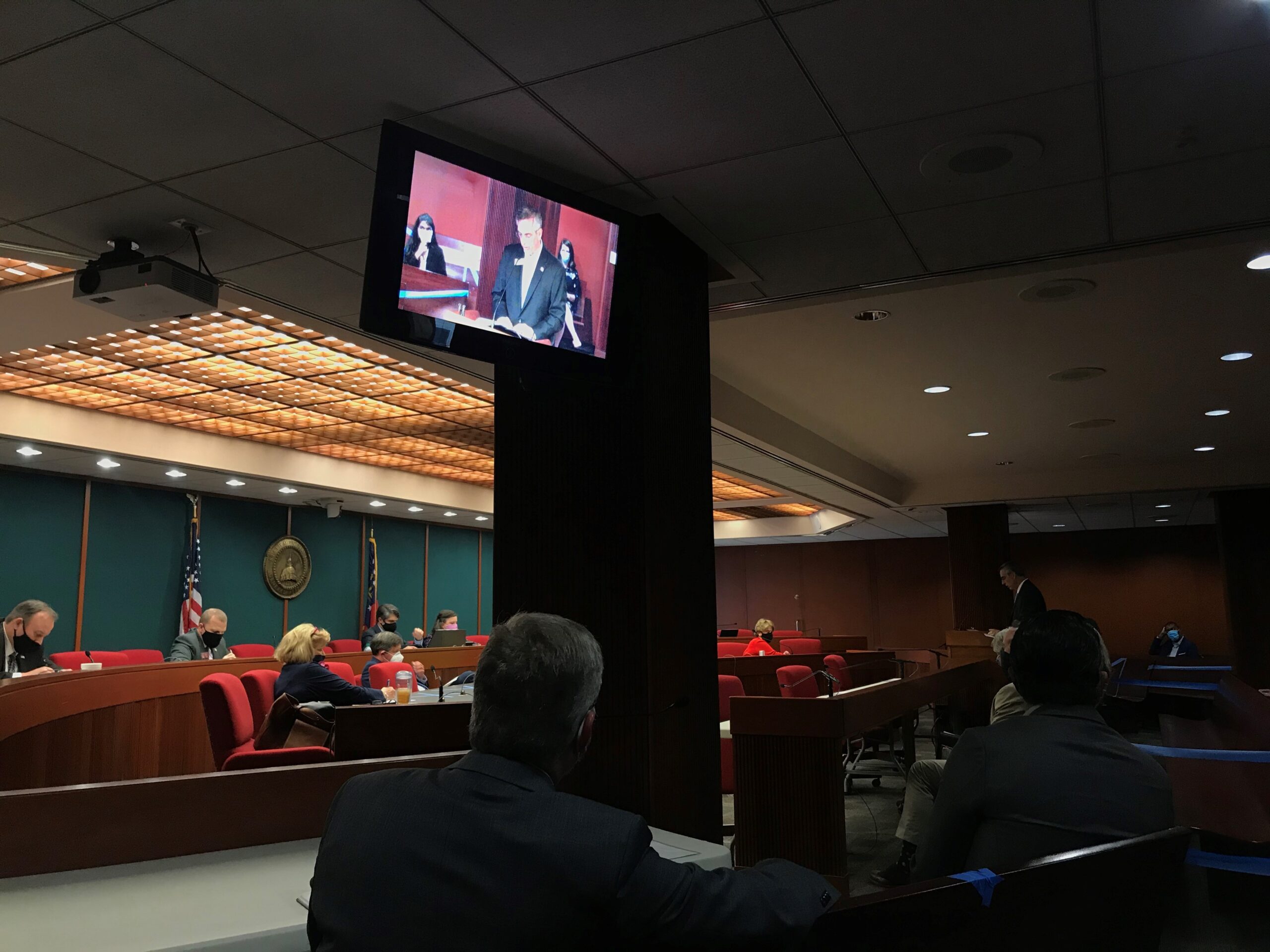Five million Georgians are expected to vote in November, an election that will come less than five months after the state experienced a bumpy primary.
Amid a global health pandemic, the state rolled out its new voting system statewide for the first time on June 9.
The result: many voters had to wait in lines for hours as poll workers – some of them brand new – sorted out technical problems.
“We think the most important thing, obviously is training, training and re-training,” said Secretary of State Brad Raffensperger as he spoke in front of the House Governmental Affairs Committee. “And having more techs [technical support personnel] in there so that any issues that do pop up can be really handled expeditiously so that we have an improved result in November.”
Raffensperger pledged to have technical support at every precinct in November, something that wasn’t there in June.
Tuesday’s meeting started an hour late because House members were still across the street voting on a hate crimes bill which had been passed by the Senate just a short time before. And when the meeting started, Raffensperger made only a brief statement and took a handful of questions, citing other obligations.
That didn’t sit well with House Minority Leader Bob Trammell, who said he wanted to hear more from the state’s top election’s official.
“I would point out that voters often waited in line for hours, and the secretary was here for 20 minutes,” said Trammell.
While Raffensperger departed, several members of his staff, including Gabriel Sterling, stuck around to answer more questions from lawmakers. Sterling oversees the implementation of the new voting machines.
Trammell asked Sterling to give the secretary of state’s office a grade on how it handled the June 9 election. Sterling avoided a direct answer.
“In a COVID situation, everybody’s not going to be doing their best,” said Sterling. “And that includes the counties; that includes this office to a degree, I’m quite sure. When I look backwards on it, what else could we have done differently? We might have been able to do a little more hand-holding, but we did a lot of hand-holding.”
Sterling and Raffensperger said that 70% of election issues reported to their office for the primary elections came from Fulton County, with the other 30% spread out around the state. It was a slight shift from the immediate aftermath of the elections in which both men admonished Fulton County almost exclusively for not being prepared.
That initial finger-pointing was still weighing on the minds of several lawmakers on the committee, including Holly Springs Republican Rep. Scot Turner. He asked the secretary of state’s office and voting machine manufacturer, Dominion, why a paper jam issue in Cherokee County brought to their attention in February was still without a fix. Turner said it was troubling that a paper jam could allow voters to print multiple identical ballots.
Dominion said it was still investigating.
Meanwhile, Democratic Rep. Renitta Shannon of DeKalb County also suggested the election struggles were more widespread.
“It has been an issue where folks have not received absentee ballots,” said Shannon.“So please stop saying it’s mostly Fulton or just Fulton. Because I assist my constituents, and it’s not just one family that had this issue.”
More than 1.1 million people voted by absentee ballot in this election, a dramatic increase from the 5% who normally vote by mail. An additional 326,000 Georgians voted early with 811,000 casting ballots on election day.
The 2.2 million total votes cast was the most ever for a Georgia primary.
Raffensperger reiterated that he would not be sending absentee ballot applications to all active voters in the state for November, as he did in June.
That concerned several members of the committee, who cited rising numbers of coronavirus infections in Georgia as a reason that voting by mail might be just as important in the fall as it was this spring.









